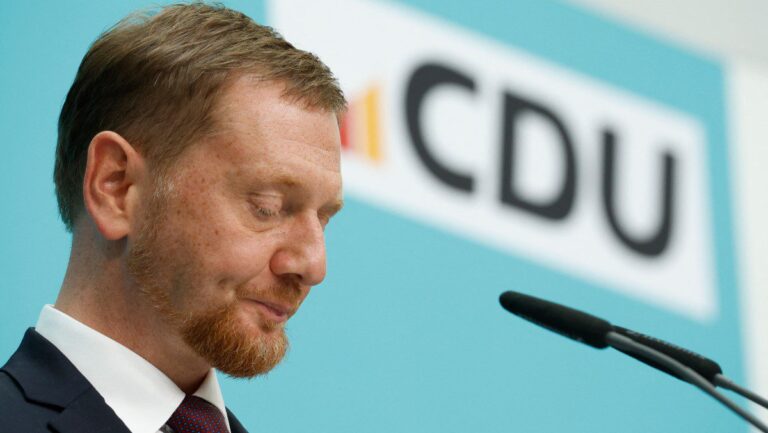A rather superficial debate between liberal, left, and green candidates for the European Commission presidency briefly heated up on Thursday, as speakers locked horns over how to combat and neuter the so-called ‘far right.’ Indeed, the question of handling populism appropriately was the major point of divergence between the candidates in the 90-minute televised debate.
While Commission incumbent Ursula von der Leyen was the only candidate on stage with a realistic chance of taking the EU’s top job, all five speakers pitched their legislative vision, ranging from Austrian communist Walter Baier from the NATO-critical Left group to Macron loyalist Sandro Gozi, representing the liberals in Renew.
Despite a significant portion of the ‘debate’ fixating on the populist right parties―specifically whether the moderates and liberals of the European People’s Party (EPP) and Renew group should go into coalitions with them. No spokesperson from either the Identity and Democracy (ID) or European Conservatives and Reformists (ECR) groups was on stage after organisers deemed their representatives to not be true Spitzenkandidaten
Von der Leyen was quizzed repeatedly about her centrist EPP faction’s intentions to form a working coalition with the ECR. The German Christian Democrat responded that conservative Italian prime minister Giorga Meloni from the group matched her party’s “pro-EU, against Putin, and pro-rule of law” criteria.
Meloni and von der Leyen have struck up a positive working relationship in the period since the Italian populist took power in Rome—partially driven by Italy’s financial dependence on the European Commission. The Fratelli leader helped draft EU migration deals with North African states.
Overtures to the right have spooked establishment parties in Brussels, hence the Greens’ Terry Reintke and socialist Nicolas Schmit lambasting von der Leyen for working with ‘anti-democratic’ elements within the EU Parliament.
“We strongly condemn the statement by Socialist candidate Nicolas Schmit, who claimed that the ECR is not a democratic force. This assertion is not only false but also shows a profound disrespect for the millions of voters who support our parties at local, regional and national…
— ECR Group in the CoR (@ECR_CoR) May 23, 2024
Similarly, the recent Dutch coalition agreement―putting the People’s Party for Freedom and Democracy (VVD) in government together with national populist Geert Wilders―provoked Reintke’s anger against the federalist Renew group. French Macron party’s Sandro Gozi has not ruled out the possibility of expelling Renew’s Dutch —something his party colleague Valérie Hayer has already said to expect a vote on after the June elections.
If the debate sounds weirdly skewed towards absent European populists, the majority of its content was a predictable snooze-fest. Despite the reservations expressed by Austrian left candidate Baier over EU militarisation and his group’s calls for a Ukrainian ceasefire with Russia, the mainstream candidates split hairs over the usual issues of climate change and economic policy.
Hitting the standard notes on environmentalism and equality, the debate was heavily focused on rearmament, as even the green and socialist speakers agreed that Europe needed to remilitarize.
Conscious that expansion into the Western Balkans and even Ukraine would define much of the next five years, von der Leyen endorsed Polish plans for a shared missile defence system, independent from the United States. Renew’s Gozi warned that Europe was ‘on the menu’ in Washington and Beijing, due to a failure to prepare for war.
Speaking to a largely left-leaning youth audience that included questions from 17-year-old Polish TikTok stars and an Afro-Dutch DJ from Antwerp, the largest applause from the crowd came when the Communist speaker advocated sanctions against Israel.
Thursday’s Brussels debate was a failed attempt to apply a democratic varnish to an EU technocracy of which normal Europeans know little and care less.





